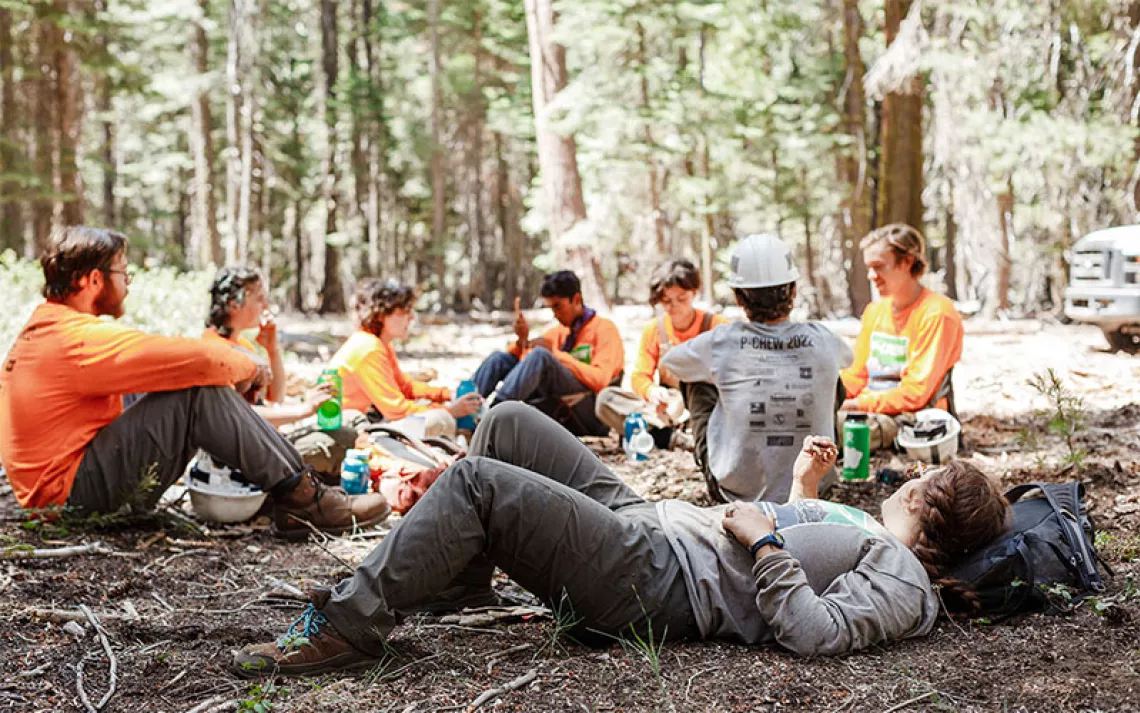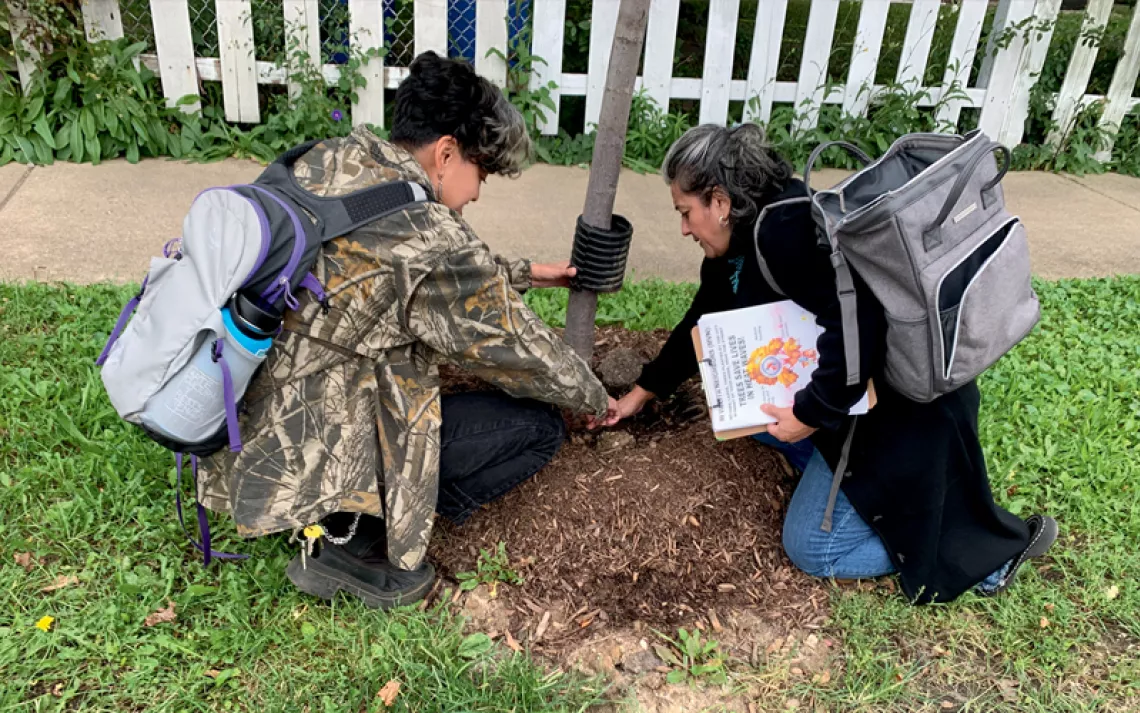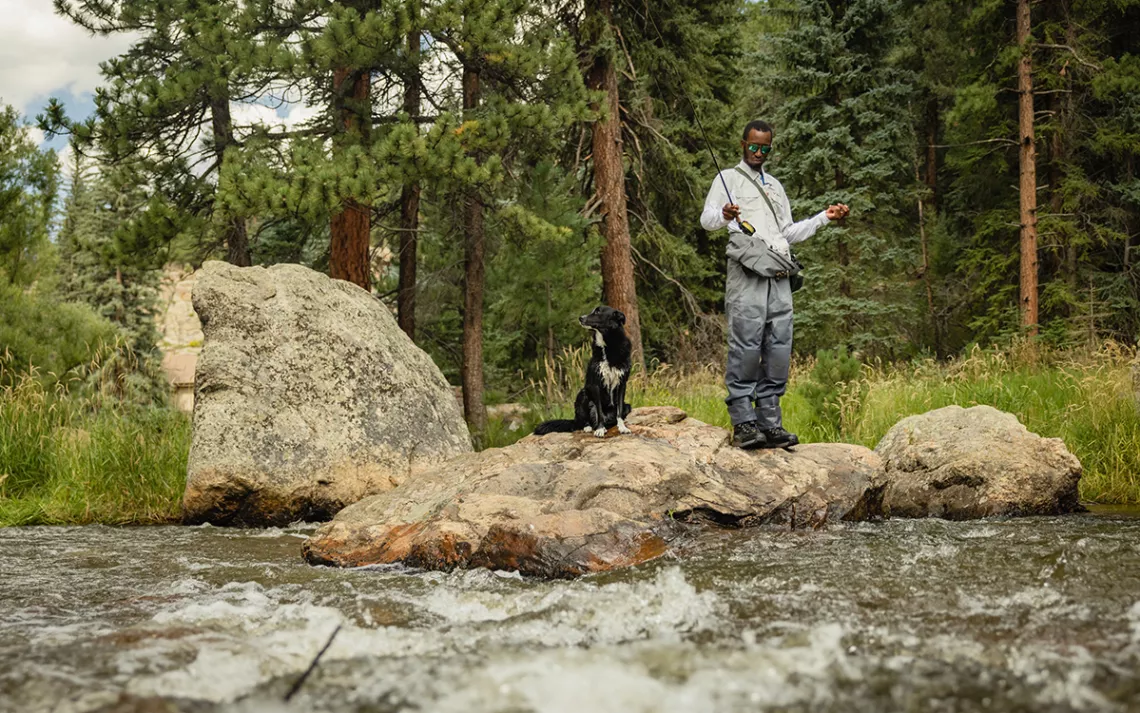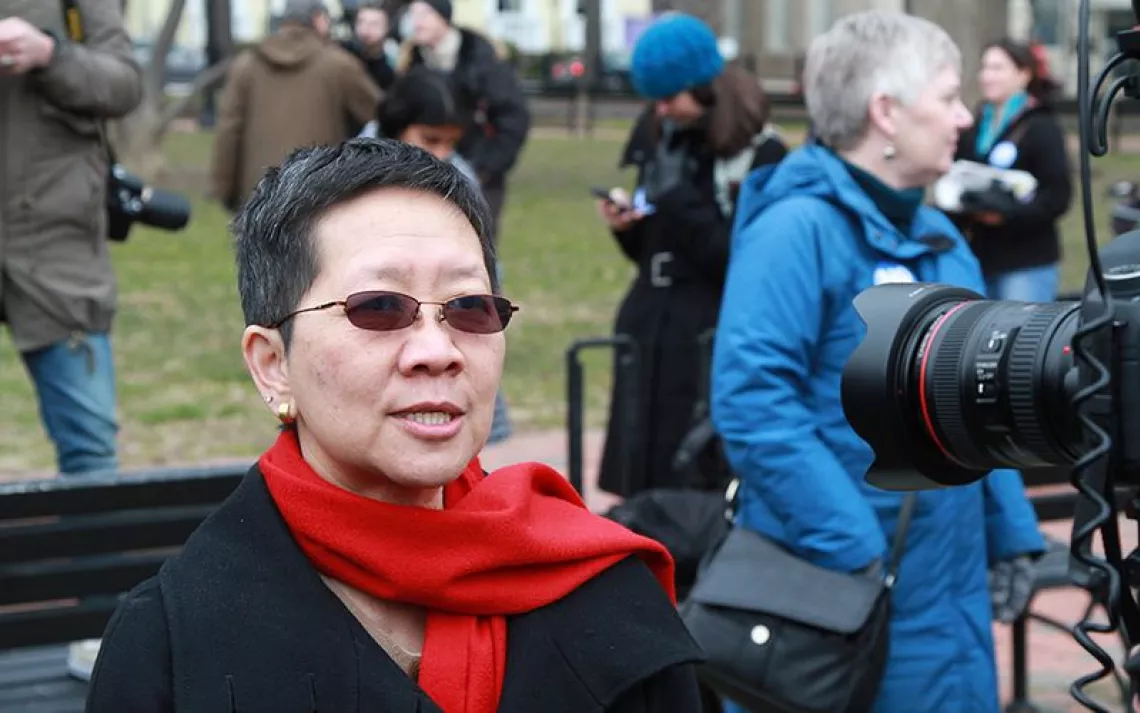Black Ecologists Organize to Create Community and Elevate Research
Here’s why they’re creating space for themselves and those who look like them

Photo byFG Trade
Finding Black people at professional conferences sometimes felt like finding specks of pepper in an arena of sea salt, according to Dr. Nyeema Harris, a professor at the Yale School for the Environment. “The pepper gravitated to each other,” she said. “And we held onto each other for those four or five days.”
Harris is a distinguished conservation ecologist who has authored over 40 academic papers. Her research spans genres and the globe, delving into everything from the gastrointestinal parasite community of the West African lion to camera trap studies in Michigan. And she loves ecology, her passion for the field palpable from the excitement in her voice as she speaks about her research. But sometimes, she found it difficult to navigate as a Black person.
“Regardless of your identity, [ecologists] are connected because of our professional affiliation. So that means to some extent we're creating a family in our professional lives,” Harris said. “But the whole time navigating my profession, it felt like I was the stepchild.”
Conservation is a notoriously white-dominated field. Black people received only 1.8 percent of PhDs in ecology and its related disciplines, according to one study published in 2014. Finding a community once a year at professional conferences wasn’t sufficient for Harris. She wanted the wider ecological community to acknowledge Black ecologists not just for the challenges they have endured but for their intellectual contributions. All researchers bring their personal experiences with them to work, and Black ecologists can offer valuable perspectives.
For example, when Harris recently conducted research on urban environments, she said her identity allowed her to engage with Black people who live in those spaces in a more authentic way. She said it also pushed her to ask questions about the intersection between urban environments and sociological factors, such as gentrification, heat stress, housing inefficiencies, and disease exposure, which disproportionately affect people of color.
So at the end of 2020, following the high-profile murders of several unarmed Black people at the hands of police officers, she and several colleagues decided to start a group for Black people in ecology. It’s officially called the Black Ecologists Section of the industry’s leading professional group, the Ecological Society of America, but sometimes, they call themselves the Blackologists.
One of the group’s primary goals is to promote retention in the field. To that end, they’ve hosted several social and professional networking events, highlighting members and their research each month, and they’ve also curated a collection of academic papers produced by Black scholars or focused on diversity, equity, and inclusion issues within ecology. This September, they’ll cohost a field trip for undergraduate students to learn about urban ecology in Houston.
“We think about science differently because of our identities.… That is not a crutch; it's not a disadvantage; it's not something to be marred or disdained. It's something to recognize that that is a part of the lens that you're looking through the ecological landscape,” said Harris. Some of the founders “have felt that we've gotten invited into spaces, to sit on panels or participate in different kinds of events, from a very tokened perspective,” she added.
Harris is often asked about her journey or how exactly she became interested in ecology. It’s one of her favorite stories in the world. At only 13 years old, she visited the Masai Mara in Kenya, where she witnessed lions hunting a pregnant gazelle. She described the experience as a National Geographic moment, inciting all sorts of questions in her young mind. She wondered why did they pick the pregnant gazelle? These questions eventually led to an interest in research.
But it’s a story she sometimes questions how often she’s telling. Her white peers don’t seem to be asked how they became interested in ecology quite as much as her. She said she sometimes felt disdain and frustration at the assumption that seemed to lie beneath the question—that it’s unusual for someone who is Black to be interested in the field.
It’s a phenomenon that other Black ecologists said they often face: the idea that Black people, and people of color in general, aren’t interested in the environment.
Dr. Milton Newberry III, the group’s February Blackologist of the month and a director for the sustainable technology program at Bucknell University, is cowriting a book about the issues that people of color in ecology face and best practices for how to navigate the field. Part of the problem, he says, is that Western wildlife conservation frequently leaves out cultural context, which is important in understanding how different communities engage with the environment.
“I take offense to it when people say Black people don't like the outdoors, don't like nature, don't like animals,” he said. “But many people in the Black community might say that. My mom would even say that, to some extent. She would say that’s not what we do. And I'm like, but it is. Historically speaking, it is what we have done. Black people were forced to come over to the United States, come to a completely new land, and they still learned to engage with the environment around them, learned to cultivate the land, learned to live with the animals, and learned to live with other Indigenous groups here, when given the chance.”
Historical exclusion might explain why some communities of color engage less with hunting, fishing, camping, and other outdoor activities, according to Dr. Nia Morales, an assistant professor in the wildlife department at the University of Florida, who coauthored a paper in the Black Ecologists Section’s collection.
“Jim Crow laws, whether they were actually on the books or just implied social norms, restricted who could go where. So there's many instances where families of color could not, for example, go to a national park because they would be denied entrance. And that could have been legally enforced. They could have actually brought the cops there and escorted those people off,” Morales said. “And so if you think about it, if a group of people is systematically denied an opportunity to recreate, it becomes part of their cultural fabric.”
Black Americans made up less than 2 percent of national park visitors, according to a 2018 report in The George Wright Forum, a journal on parks, protected areas, and cultural sites. And this perception, that people of color don’t belong in outdoor activities, still sometimes plays out today, Morales said. She pointed to recent examples such as Christian Cooper, a Black man who was birdwatching in Central Park when a white woman called the cops on him, which led other Black birdwatchers to speak out about similar incidents they experienced. Or “BBQ Becky,” who called the cops on a Black family over a barbecuing dispute and was later turned into a popular meme.
Ecology could be made more accessible by certain structural changes, several ecologists said. Field courses are often gateways into careers as ecologists or geoscientists, but they require large sums of money and time, which could be changed, Morales said. Ecology could also be made more accessible for those who are disabled, Newberry added. For example, a researcher who isn’t able to physically collect specimens from snakes could still complete fieldwork in other ways, such as through recording data, and have someone else go into the terrain.
“If we continue the status quo … then you're going to limit retention. And by limiting retention, you're limiting creativity, you're limiting the extent to which science can be done,” Newberry said. “Having different cultures involved in ecology, and their engagement with nature, also shapes our research. This doesn't exist in a vacuum. We, as a species, are part of nature.”
 The Magazine of The Sierra Club
The Magazine of The Sierra Club



